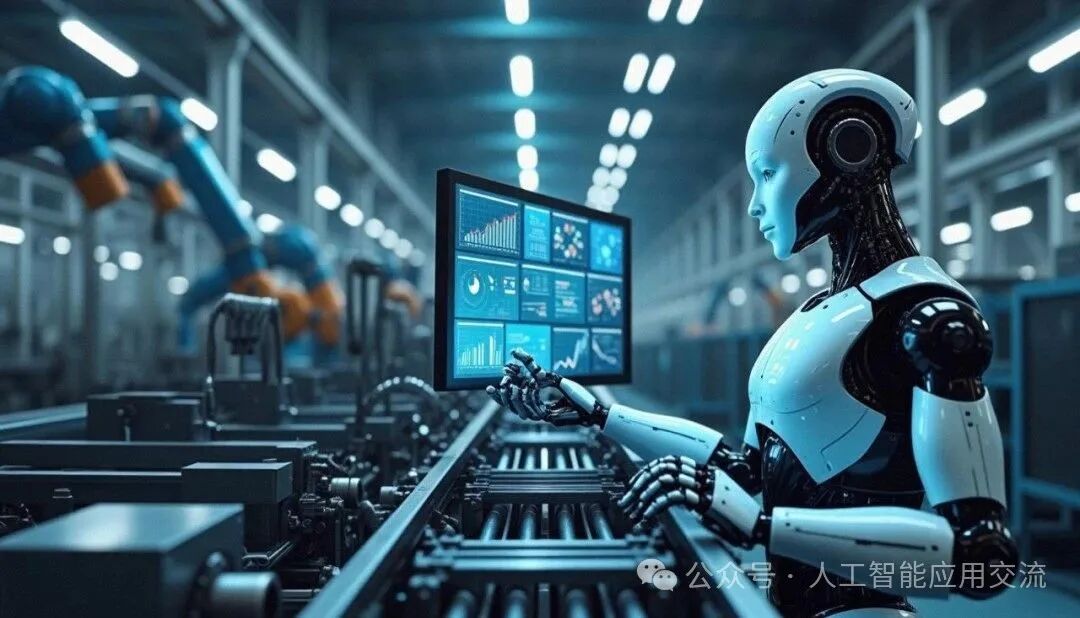In the era of “AI (Artificial Intelligence) +”, global supply chains are being restructured, forcing traditional manufacturing industries to seek transformative breakthroughs. Industrial AI Agents, capable of perceiving the environment, autonomously understanding, making decisions, and executing actions, reveal new directions for future industrial manufacturing and are considered key to changing the “game rules”. Research institutions believe that the field of vertical AI agents will welcome a blue ocean market, with significant market growth expected in the next three years.

Flexible Manufacturing Made Easier
With the rise of Industry 4.0, flexible manufacturing is becoming an important trend in the development of the manufacturing industry. Flexible production not only requires production lines to flexibly adjust product types but also needs to quickly adapt to external changes during the production process. Industrial AI Agents can optimize production plans and scheduling in real-time through precise data analysis and intelligent decision-making, enabling production lines to efficiently respond to market changes, making flexible manufacturing “easier”.
Imagine that when a new production task is received, engineers no longer need to perform complex programming and design; they can simply issue commands in natural language, and the entire production line can quickly and automatically switch modes, achieving seamless transitions between different processes. By analyzing historical production data, it can even identify that a certain production link has high energy consumption and automatically adjust the parameters of that link to reduce energy consumption. Such Industrial AI Agents may completely solve the traditional production line’s challenges of “difficult mode switching, slow response, and high costs”.
Enterprise Case Studies
Precision Measurement and Control has independently developed the Industrial AI Agent—PRIME:
- • Direct control of industrial equipment through natural language interaction
- • Integration of different industrial platforms to dynamically adjust production parameters based on real-time data
- • A leading home appliance brand’s application results: Energy consumption reduced by 30%, testing efficiency improved
“Through the PRIME AI Agent, natural language can be efficiently transformed into precise control and execution of engineering objects such as industrial controllers, testing and measurement instruments, and actuators… enhancing innovation efficiency in the engineering industry.” — Wang Lei, Chairman of Precision Measurement and Control
Heihu Technology Industrial AI Agent application scenarios:
- • Replacing manual experience to analyze CAD drawings and generate process paths, reducing process preparation time by 60%
- • Distributed Agents taking over coordination work, with a food company’s production scheduling response speed increased by 3 times
- • ChatBI system supports natural language interaction (e.g., querying production line gaps to generate multidimensional reports)
- • AI development system reduces software customization time from 1-2 months to 1-2 days
“New technologies bring more new opportunities… solving more scene challenges.” — Zhou Yuxiang, Founder and CEO of Heihu Technology
Human-Machine Collaboration Model Will Be Completely Disrupted
Unlike traditional artificial intelligence, the core breakthrough of AI Agents lies in their ability to independently think and gradually achieve goals by calling tools. In industrial scenarios, intelligent systems with autonomous perception, decision-making, execution, and feedback capabilities will completely disrupt the human-machine interaction model.
Milestones in Capability Evolution

- • Tesla Optimus Robot (2024): When responding to vague instructions to “organize the lab”, it autonomously identifies 23 types of equipment, plans safe transport paths, and proactively warns of potential hazards in centrifuge placement, achieving a leap in capability from passive execution to proactive cognition.
- • Siemens Industrial AI Agent Practices:
- • Thyssenkrupp: Code quality of engineers improved by 30%, development speed increased by 45%
- • Bartnoystadt Factory: Time to convert distributed data into decision insights reduced to 1/6
“AI Agents will reconstruct the human-machine interaction model… shifting from traditional graphical interfaces to more natural human-machine interactions.” — Zou Debao, Executive Deputy General Manager of the AI and Big Data Research Center at CCID Consulting
Multi-Agent Collaboration Becomes a New Trend
Currently, most factory systems remain in the stage of “automation rather than intelligence”, and system fragmentation makes it difficult to achieve a closed loop of “perception-cognition-decision”. The core value of Industrial AI Agents lies in awakening the “thinking genes” of every process and every piece of equipment.
Innovative Collaboration Models
Hengyuan Technology Multi-Agent Intelligent Collaboration Network:
- • Production scheduling Agent: Dynamically optimizes work order allocation
- • Logistics Agent: Intelligently plans delivery routes
- • Quality Agent: Monitors key processes in real-time
- • Collaboration Mechanism: In the event of emergencies, capacity redistribution and parameter calibration are completed in milliseconds through distributed negotiation algorithms, breaking the limitations of traditional MES systems’ centralized control
Siemens Industrial AI Agent Strategic Upgrade
- • Launching an enhanced Siemens Industrial Copilot, expected to improve production efficiency by 50%
- • Innovating the “Intelligent Conductor” system: Flexibly schedules professional AI Agents for collaborative work
- • Building the Industrial AI Agent Market Center (Xcelerator Marketplace):
- • Integrating Siemens’ own and third-party AI Agents
- • Creating an “APP Store” ecosystem in the industrial field
“Industrial AI agents connect different functional collaborative assistants… regardless of the technical proficiency of practitioners, they can easily apply industrial AI technology. Agents autonomously undertake routine workflows, freeing human resources to focus on innovative research and development.” — Rainer Brehm, CEO of Factory Automation at Siemens Digital Industries
END Artificial Intelligence Communication Center
Artificial Intelligence Communication Center
Platform Website
www.gxaiec.com/
Contact Number: 13679117758